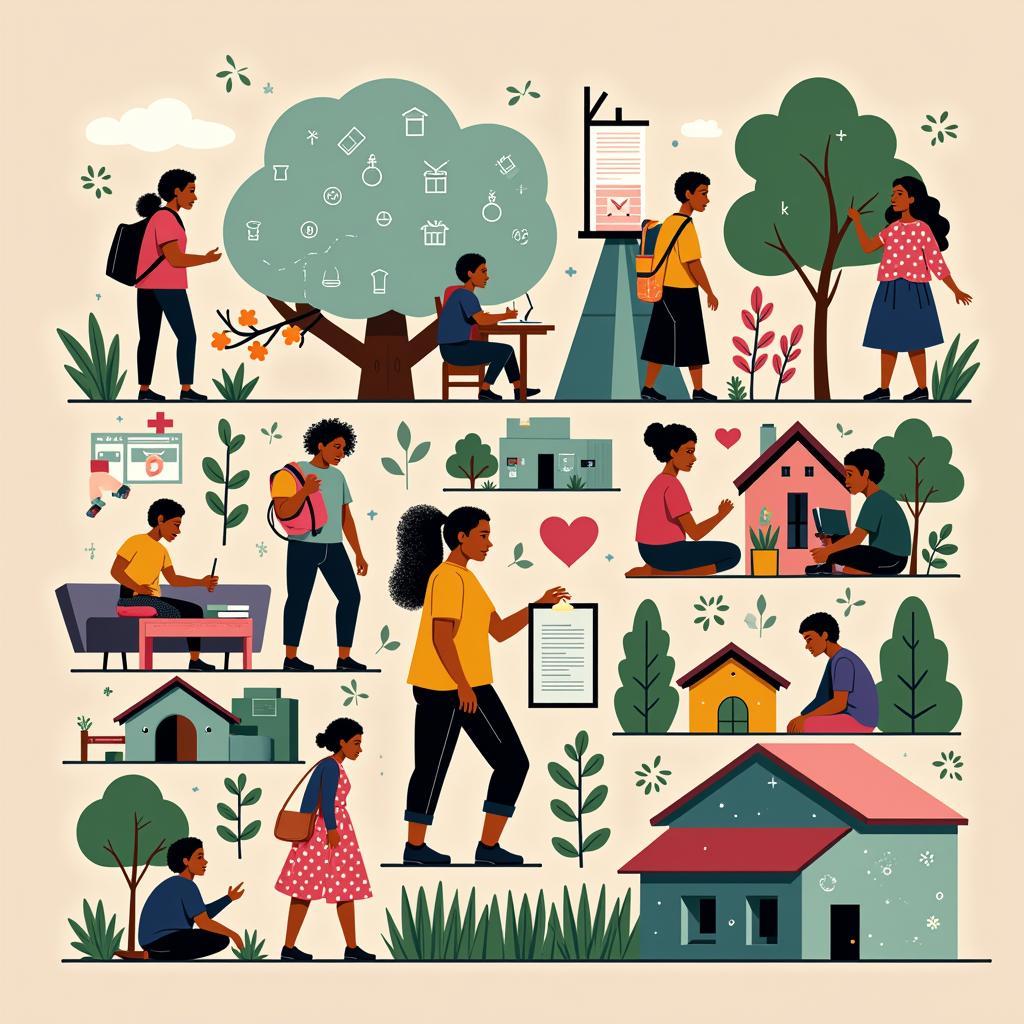The phrase “Margins Of Society” paints a stark picture. It speaks to those individuals and communities existing on the periphery, often overlooked and underserved. These are the people grappling with poverty, discrimination, lack of access to education and healthcare, and a multitude of other systemic barriers that prevent them from fully participating in and contributing to society.
 People on the Margins of Society
People on the Margins of Society
Who Lives on the Margins?
Marginalization can stem from a wide range of factors, including:
- Socioeconomic Status: Poverty is a significant driver, trapping individuals and families in a cycle of limited opportunities and reduced life chances.
- Race and Ethnicity: Systemic racism and discrimination continue to create significant disparities in access to resources and opportunities for marginalized racial and ethnic groups.
- Gender Identity and Sexual Orientation: LGBTQ+ individuals often face prejudice, discrimination, and violence, pushing them to the fringes of society.
- Disability: People with disabilities often encounter physical and social barriers that limit their full participation in society.
- Immigration Status: Immigrants, particularly undocumented immigrants, often live in fear and uncertainty, lacking access to essential services and facing exploitation.
 The Impact of Marginalization
The Impact of Marginalization
The Consequences of Living on the Margins
The consequences of marginalization are far-reaching and impact every aspect of an individual’s life:
- Health Disparities: Limited access to healthcare, nutritious food, and safe housing leads to higher rates of chronic illnesses and shorter life expectancies.
- Educational Inequities: Children living on the margins often attend under-resourced schools, hindering their educational attainment and future prospects.
- Economic Vulnerability: Limited job opportunities, lower wages, and financial instability create a cycle of poverty that is difficult to break.
- Social Exclusion: Marginalized communities often experience stigma, prejudice, and discrimination, leading to social isolation and reduced social mobility.
Bridging the Divide: A Call to Action
Addressing the needs of those living on the margins of society is not just a moral imperative but also essential for building a just and equitable world. Here are some steps we can take:
- Promote Inclusive Economic Growth: Invest in job creation programs, provide job training and skills development opportunities, and advocate for a living wage.
- Ensure Equitable Access to Education: Provide quality early childhood education programs, increase funding for under-resourced schools, and make higher education more affordable.
- Expand Access to Healthcare: Advocate for universal healthcare coverage, address health disparities, and provide culturally competent care.
- Challenge Discrimination and Promote Inclusion: Address systemic racism, sexism, homophobia, and other forms of discrimination through education, policy changes, and community engagement.
- Amplify Marginalized Voices: Create platforms for marginalized communities to share their stories, advocate for their needs, and participate in decision-making processes.
Building a More Just and Equitable Future
Creating a society where everyone has the opportunity to thrive requires a collective effort. We must move beyond simply acknowledging the existence of those on the margins and actively work towards dismantling the systems that perpetuate inequality. By embracing empathy, understanding, and a commitment to social justice, we can build a world where everyone has the chance to reach their full potential and contribute to a more vibrant and inclusive society.